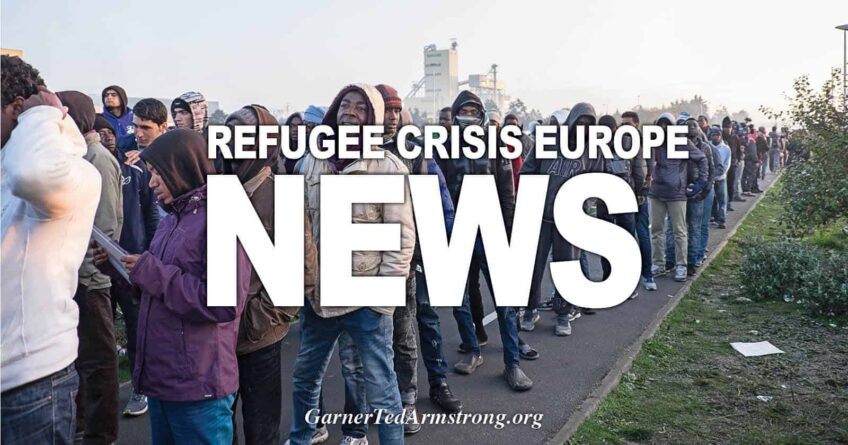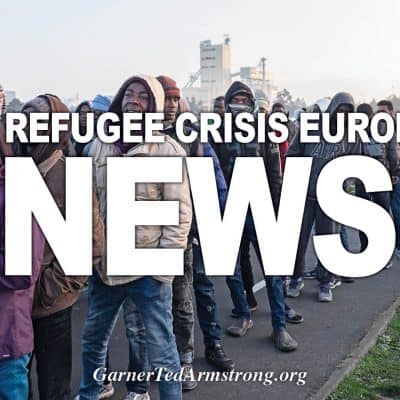SINCE Chancellor Angela Merkel has been recently bogged down by negotiations on forming a new governing coalition for Germany, the scene has been left clear for another European leader to take center stage – and, no, I do not mean Theresa May. The British prime minister’s grip on power is looking shaky as talks over Britain’s exit from the EU have failed to progress satisfactorily under her stewardship.
No, the dominant force in Europe, for the moment at least, is Emmanuel Macron, the president of France. On a recent visit to Beijing he showed his confidence by bestowing on President Xi Jinping the magnificent gift of a horse called Vesuvius, a grand gesture in the classical French style.
Can Macron, then, be designated the new leader of the EU? Well, it is probably too early to say. With the successful conclusion of Merkel’s coalition talks, the German chancellor is likely to seek to re-establish her credentials as Europe’s foremost dealmaker and spokesperson.
The most probable outcome, in fact, is a dual French-German powerhouse on the global stage led by a Macron-Merkel partnership. But in terms of Europe’s relations with Asia, there is little clarity about the direction these will go in.
The EU has been preoccupied of late with Brexit and solving the refugee crisis, as well as with various election campaigns. This has meant that policy toward Asia has taken a backseat to other priorities. With Macron and Merkel now emerging together into the light of a post-Brexit era which should strengthen European unity and the Franco-German pact, there is a strong possibility of greater European engagement with the Far East of the Eurasian landmass.
However, arriving at improved relations with China is not likely to be plain sailing, even in spite of Macron’s successful visit to Beijing in early January. Brussels remains suspicious of the motives behind China’s expansive Belt and Road initiative and associated investment by Chinese companies in European enterprises, and it is going to be as difficult as ever to change those perceptions.
There is no doubt that Europe needs to be more active in Asia as a whole. With the advent of the Quadrilateral Security Dialogue, or Indo-Pacific quad, a putative alliance between the US, India, Japan and Australia, the EU is in danger of being left on the sidelines.
If the quad adopts an anti-Chinese, anti-Russian stance, however, then Brussels will have to decide which side it wants to stand on. Of course, the EU is feebler than it could be as a global player because it lacks an army. This makes its power projection in distant Asia almost non-existent. Hence it is mainly in the economic realm that Europe is likely to make a serious impact.
As China’s biggest trading partner, the EU has greater clout than might at first sight appear to be the case. The recent visits by Macron and May demonstrate that Beijing values European partners, even ones who are leaving the EU. The question is: what direction is Europe going to steer in? The best forecast is that Brussels is not suddenly going to be hyperactive in the Asia-Pacific. Without a solid power base it is difficult for the EU to do much more than make pronouncements, most of which usually tend to be empty, meaningless words about human rights protection. Active engagement in Asian issues thus seems as far away as ever.
It is about time that Europeans acknowledged that the global center of gravity has shifted to the Pacific rim both in economic and political terms. This is, however, going to be a difficult admission for European pride to swallow, and it may still take some time for a mindset change to come about.
The best hope is that the Merkel-Macron axis will see the wisdom of guiding Europe toward its pro-Asian future. If they and their advisers can develop a proper strategy toward the Indo-Pacific region – one that has so far been lacking in the corridors of Brussels – then there would be a chance of progress.
Merkel has visited China on average once per year for the last decade, so she knows Asia’s importance. Macron’s trip to Beijng with a coterie of businessmen in tow demonstrates that he has also clued in.
On this basis, observers can only hope that the next few years will bring a more incisive European involvement in Asian affairs, with a more positive mentality toward the region in which the world’s future is certain to be forged in the 21st century.
—Courtesy: Global Times
[The author is a lecturer in international relations with the Jan Masaryk Centre for International Studies at the University of Economics in Prague]. opinion@globaltimes.com.cn]Source: https://pakobserver.net/eu-asia-match-made-heaven-hell/
[Disclaimer]









